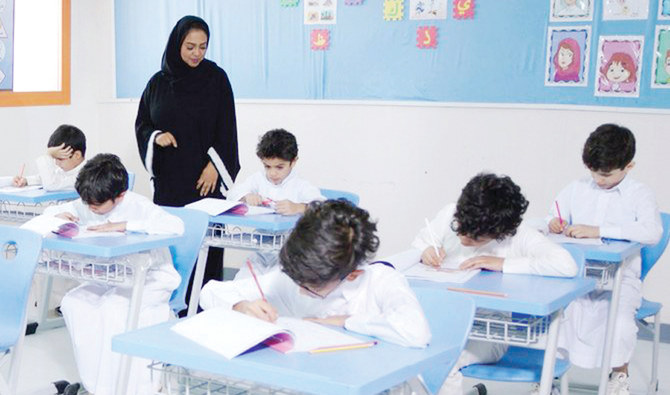
- ARAB NEWS
- 02 Jul 2025

Alaa Ali
JEDDAH: Integrating and including students with special needs into public schools can go a long way to improve their social and cognitive skills, according to a specialist.
Dareen Al-Khamasi, a psychologist, said integration was instrumental for students with special needs because it could help them acquire new skills and gain exposure to real-life experiences during their daily interactions with peers.
“It is also as beneficial for students who do not have any physical disabilities as they will learn new experiences when they see how students with special needs handle social and educational situations,” she told Arab News. “It can help them accept students with physical challenges and mitigate the differences.”
There were two types of integration, she explained, partial and full. Full integration meant involving a child with special needs into the school environment with other students, while partial integration allowed students with special needs to take part in extracurricular activities and drawing classes with other students. Partial integration also required students with special educational needs to have their own classrooms, she added.
Integrating children at a very young age could bring positive results for them and improve their IQ. Al-Khamasi said physically challenged students had low IQ scores because their parents had not integrated them at a younger age. She said 95 percent of public schools were well-equipped to accommodate this category of students.
The Ministry of Education plans to introduce a program that fits the needs of each and every disabled student. The move follows an initiative to integrate students with visual and hearing impairments, autistic children and students with communication disorders into public schools.
The ministry has worked on preparing plans for special education and designing policies that serve students with special needs. The ministry also runs a special education program in public schools which is designed for any student with special needs who joins a public school.
Umm Faris Al-Ghamdi, who has a son with special needs, said the public education integration initiative had helped her son to develop a stronger personality and sharpen his leadership skills.
“My son has become more interested in displaying his personality in front of his classmates and friends and his confidence is more enhanced now thanks to the school, which gave him a chance to intermingle with other students,” she told Arab News.
In its 2017 report on people with disabilities, the General Authority for Statistics said Riyadh had the largest percentage of people with disabilities at 25.13 percent while Najran had the lowest at 0.87 percent. The survey also showed that people with special needs aged five and over was 7.78 percent.